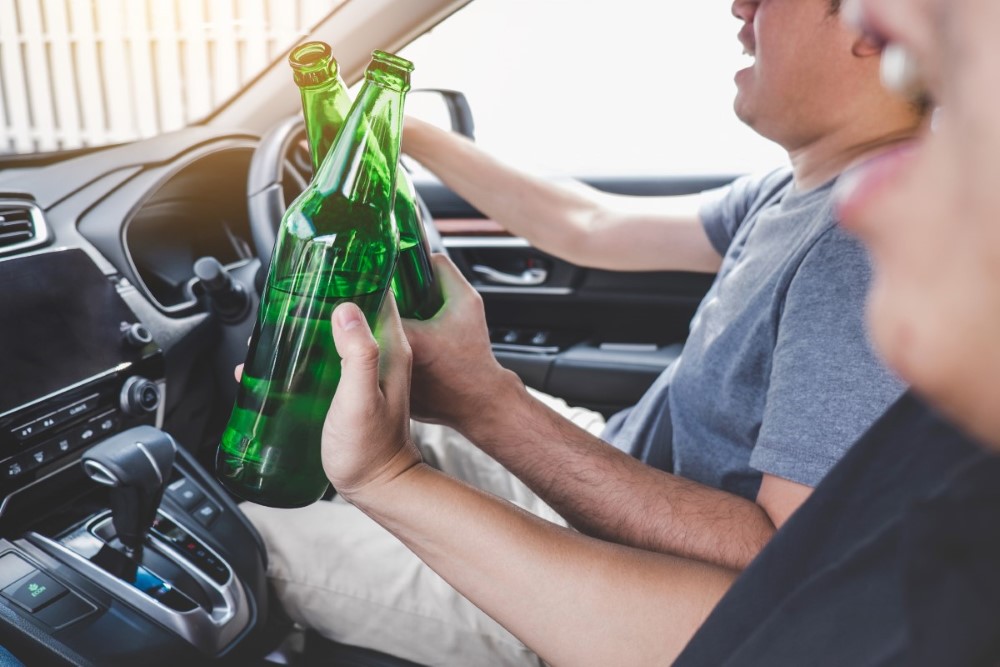Underage drinking is a critical public health issue with far-reaching consequences. It often serves as a gateway to addiction, with the developing brains of young individuals being particularly vulnerable to the addictive properties of alcohol. The initiation of drinking at an early age significantly increases the risk of developing alcohol use disorders later in life. This phenomenon is attributed to the neuroplasticity of the adolescent brain, which adapts rapidly to the presence of alcohol, potentially leading to dependence.
The journey from underage drinking to addiction is not uniform but often follows a pattern marked by increasing tolerance and dependence. Initially, what might start as social drinking can quickly escalate as the young person’s body demands more alcohol to achieve the same effects. The transition from use to abuse and then to addiction can be insidious, often going unnoticed until significant harm has occurred.
Biological Implications and Genetic Predisposition
Biological factors play a crucial role in the development of addiction in underage drinkers. Studies have shown that genetics can increase the susceptibility to alcohol dependence. Individuals with a family history of alcoholism are at a higher risk, indicating the interplay between genetics and environmental factors in the development of addiction.
The psychological landscape of an individual significantly influences the progression to addiction. Factors such as peer pressure, family dynamics, and mental health issues like anxiety or depression can drive underage individuals towards alcohol as a coping mechanism. Furthermore, social acceptance of drinking normalizes the behavior, masking the underlying risks.
Prevention and Early Intervention Strategies
Preventing underage drinking and its progression to addiction requires a multi-faceted approach. Education about the dangers of alcohol, promoting healthy coping mechanisms, and creating supportive environments are crucial. Early intervention is key; recognizing the signs of alcohol misuse early and seeking professional help can prevent the development of a full-blown addiction.
Effective policies that restrict access to alcohol for underage individuals and community initiatives that promote alcohol-free activities play a vital role in prevention. Community involvement, including school-based programs and family education, can create a supportive network that discourages underage drinking.
Overcoming Addiction: Treatment and Recovery
For those who have developed an addiction, comprehensive treatment involving behavioral therapies, family involvement, and, in some cases, medication, can be effective. Recovery is a journey that requires ongoing support and a commitment to change.
Exploring the risks associated with underage drinking unveils a critical connection to addiction development. This article delves into the impact of alcohol on the developing brain and the broader consequences of high-risk drinking, emphasizing prevention and early intervention.
Commencing alcohol consumption at harmful levels during youth heightens the risk of altering brain development. This can result in memory and learning issues, setting the stage for alcohol-related problems later in life. Understanding these developmental impacts is crucial in highlighting the potential pathways to addiction.
The Future Landscape of Underage Drinking and Addiction
The consequences of underage drinking and the subsequent risk of addiction development are not just immediate concerns but also forecast a challenging future landscape. As you navigate through this complex issue, it’s crucial to understand that today’s patterns in underage drinking could set the stage for widespread public health challenges, including increased addiction rates and associated health problems in the future.
Interplay of Societal Trends and Underage Drinking
Current societal trends, including the rise of social media and changing family dynamics, play a significant role in shaping the future of underage drinking behaviors. These platforms often glorify alcohol consumption, inadvertently influencing young minds. Recognizing these influences can help you anticipate potential risks and take proactive steps in guiding the younger generation.
Technological Advancements in Prevention and Intervention
With the advent of technology, there’s potential for innovative approaches to prevention and early intervention. Digital platforms could offer new avenues for education and support, making it more accessible for you and your community to engage in preventative strategies and seek help when needed.
The Evolution of Policy and Legislation
The future effectiveness of underage drinking prevention will heavily rely on policy and legislative changes. Stricter regulations on alcohol advertising, increased legal drinking age, and more robust enforcement can shape a safer environment for the youth. Staying informed about these changes empowers you to be an advocate for positive transformation.
Advancements in Treatment and Recovery Programs
As our understanding of addiction evolves, so will the methods for treating it. Expect to see more personalized treatment approaches that cater to the unique needs of younger individuals. This evolution will provide more effective support for those in recovery, offering hope and practical solutions for you and your loved ones facing these challenges.
The key to a future with reduced underage drinking and addiction lies in building resilient communities. By fostering environments that promote healthy lifestyles and provide support systems, you can play a vital role in shaping a brighter future. Community efforts in education, support, and health promotion will be crucial in this endeavor.
The journey towards mitigating the consequences of underage drinking and addiction development is a collective responsibility. It requires an ongoing commitment from each one of us to educate, support, and advocate for change. By understanding the potential future impacts and staying engaged in prevention efforts, you can make a significant difference in shaping a healthier, safer future for the upcoming generations.
As we conclude our exploration of the consequences of underage drinking and the development of addiction, it’s vital to revisit and tie together the key insights. This journey has illuminated the complex interplay of biological, psychological, and social factors that contribute to this critical issue.
We’ve delved into how underage drinking not only poses immediate health risks but also sets a foundation for potential long-term struggles with addiction. The transition from experimentation to dependency can be subtle yet rapid, highlighting the need for vigilance and early intervention. Moreover, the role of societal influences, such as family dynamics and social media, cannot be understated in shaping young individuals’ attitudes toward alcohol.
However, amidst these challenges, we’ve also seen rays of hope. The evolving landscape of prevention, policy, and treatment offers new tools and strategies to combat underage drinking and support those grappling with addiction. These advancements, coupled with the collective efforts of individuals, communities, and policymakers, are integral to forging a healthier future.
As we navigate this terrain, empathy and understanding remain our guiding principles. Recognizing the struggles faced by young people in today’s world is crucial. It’s about extending a hand of support, offering a listening ear, and creating safe spaces for open dialogue. Whether you’re a parent, educator, health professional, or a concerned member of the community, your role in this narrative is invaluable.
I invite you to engage further with this topic. Share your thoughts, experiences, or questions in the comments. Your insights and stories can be powerful catalysts for change and understanding. Together, let’s continue this important conversation, fostering awareness and action against underage drinking and its consequences. Your voice matters in shaping a future where the youth can thrive, free from the shackles of addiction.




